This past month, the House majority leader Steny Hoyer announced the Member Online All-Star competition. The goal of this competition is for Members of Congress to gain as many followers on social media (Facebook, Twitter, Instagram, and Youtube) as possible in the span of three weeks. See the action here.
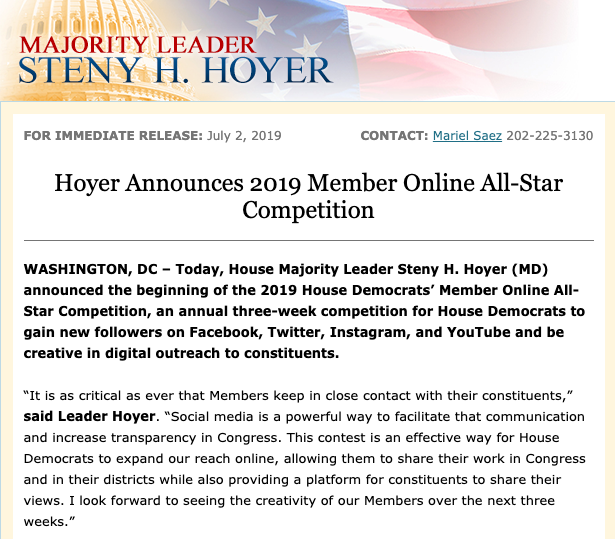
Social media is very useful for projecting information – and the more followers you have on social media, the more people will (theoretically) listen to you. So it makes sense that the leaders of Congress would encourage Members to meet citizens where they are already communicating – and spread the democratic message. That being said, there are some major flaws in the way the competition currently runs. This year provided an extreme example of what happens when leadership puts pressure on Members to use social media.
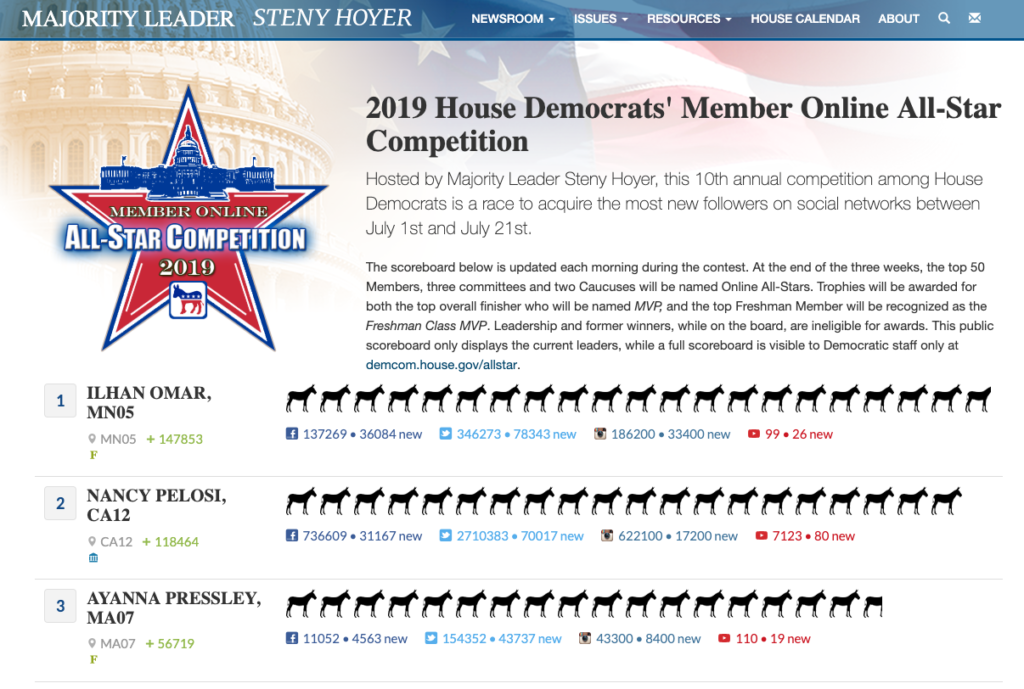
I will start by identifying the technical problems with the competition. First, the competition assumes that having more followers means you’ll have better communication. However, congressional research has repeatedly shown that social media is primarily used by Members of Congress for uni-directional communication [1] [2] . Members are not using these platforms “…for constituents to share their views.” as stated in Hoyer’s email announcement. These platforms are riddled with unchecked public trolling, bots, and profanity. And many congressional staff don’t trust the comments they receive through social media because they have no way of telling who is a constituent and who is a human – or worse – a bot. It’s a megaphone in a sea of chaos.
Encouraging citizens to show up to spaces where information is mistrusted, louder voices control the conversation, and where public trolling, bots, and profanity run rampant is disheartening, to say the least.
Second, this competition creates a culture of performativity. Congress, and politics in general, is an inherently performative space. Members project themselves in a way that matches their goals and pleases their constituents. But social media adds on another layer of performance that often pushed citizens farther away from directly communicating with their Member. Although Members are aware of the downfalls to social media, they are still encouraged by leadership through this competition to communicate on these platforms. But how do you gain more followers? You gain more media attention.
Just hours after I saw the competition announcement, my own Member had this Instagram post:
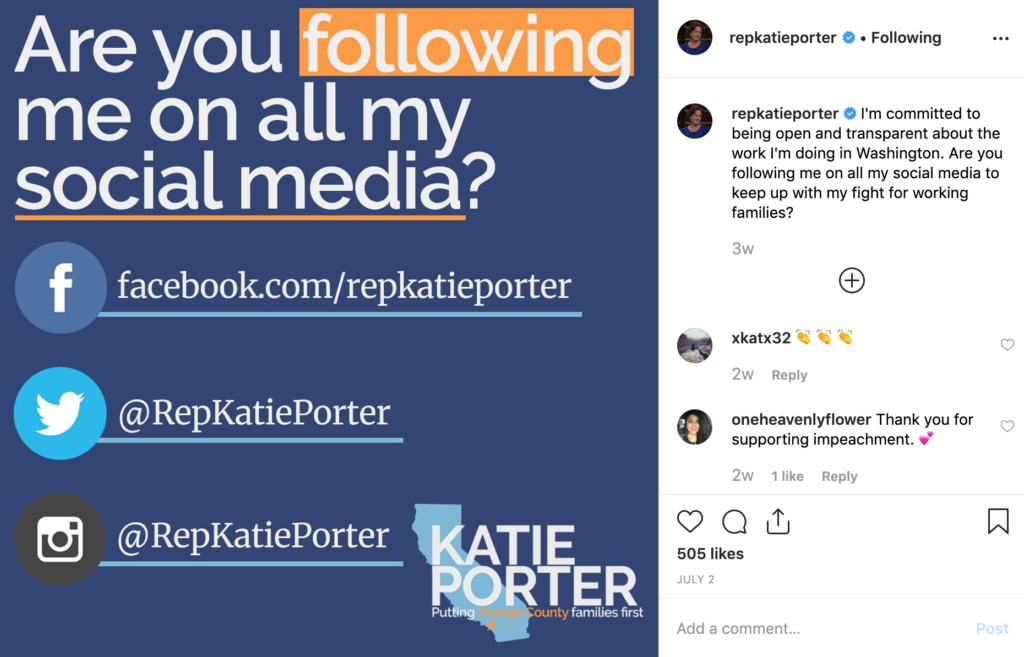
Members are being asked to perform for leadership in a way that has been empirically proven to exacerbate their already failing communication practices. And this is bad for democracy. Put succinctly by Stephen Coleman, “A political system that encourages public input into the policymaking process but ignores such input when it comes to producing outputs lacks democratic legitimacy”. Social Media encourages less substantial and more performative relations with constituents – degrading the legitimacy of our democracy.
Lastly, and most relevant to this year’s results, is that the competition rewards extreme behaviors and news coverage. The winner of the competition was Representative Ilhan Omar (MN-05). Omar is a freshman candidate that has been given a lot of news coverage over the past few months. She has been in the news for claims of anti-semitic comments towards Israel and her strong opposition to the president.

Although Omar has been in the news constantly, her popularity in media coverage soared right in the middle of the month-long competition due to a series of tweets from the president.
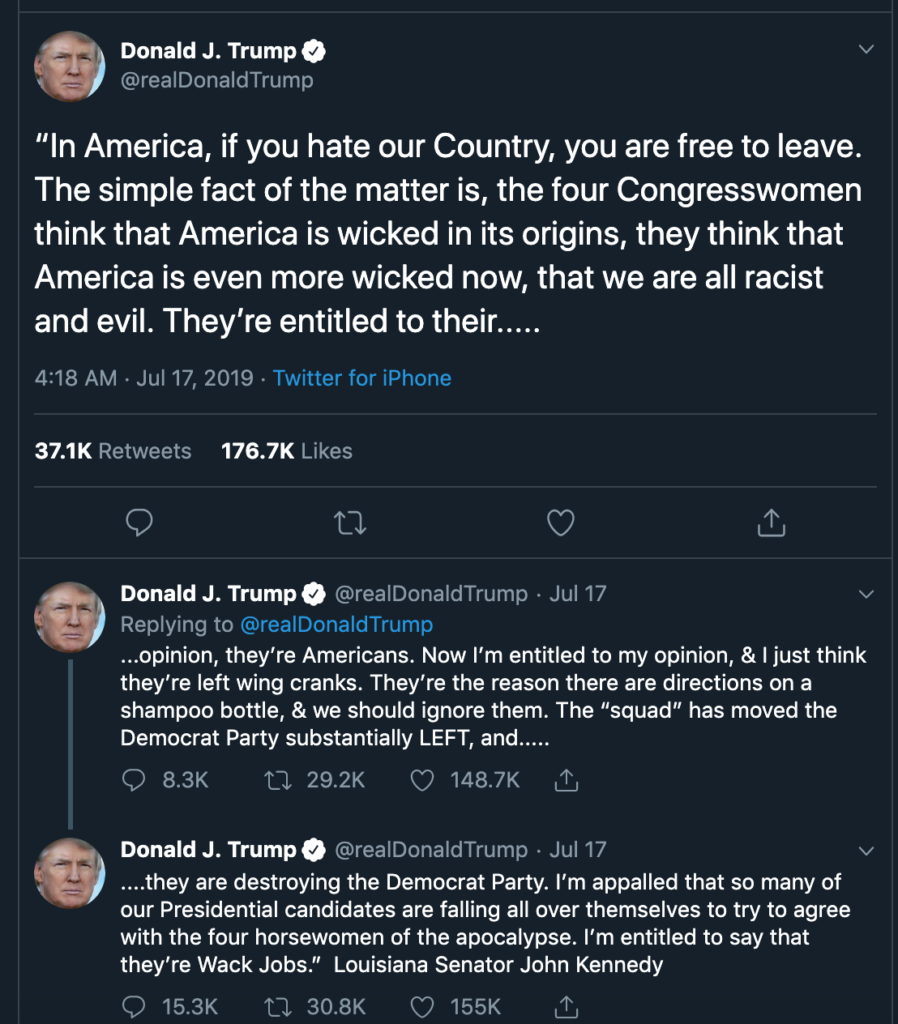
Omar and her colleagues on the ‘Squad’ have been in the spotlight as a result of these tweets. Omar was especially targeted given her immigration to the U.S.
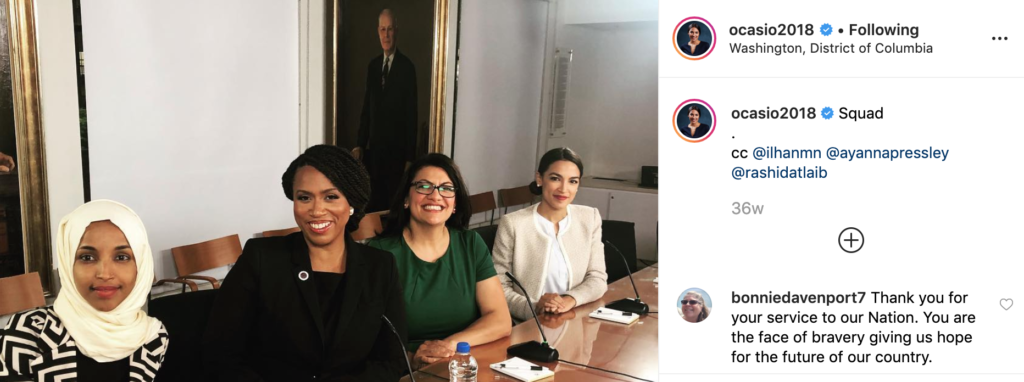
Omar didn’t win because she had more people that wanted to listen to what she had to say. Omar won because she was thrust into the news spotlight as a result of persecution from the president and her strong response. Her social media is dominated by those who like her, dislike her, and people all over the world – not a representative of the people she represents in Minnesota.
We have a serious problem when Congress starts to give out trophies to people who are ‘internet famous’. Encouraging more outreach to constituents is great, but this is not what this competition is going to accomplish.
Maybe at one point in time, these competitions were useful to encourage older Members to be open with constituents. But now these spaces are putting Members in positions of vulnerability through news cycles on a scale never seen before.
There are a number of other problems like the amount of staff labor that goes into gaining more ‘followers’, the rigged system where outwardly spoken Representatives have a better chance of winning, and the institutional pressures enacted by leadership to encourage homogeneity in communication – even when diversity in communication practices are desperately needed.
Personally, I would like to see this competition discontinued. However, if leadership does this competition again- I would suggest developing alternative metrics. Focus on quality rather than quantity of communication – like the Gold Mouse Awards that the Congressional Management Foundation used to give to Members.
Transparency and openness to policy decision-making are important. This is where social media has become useful rhetoric. But this is not transparency – this is a reward for public attention. Congress needs to think very hard about how the craze of social media is affecting their ability to govern and communication with citizens. And they need to do it now.